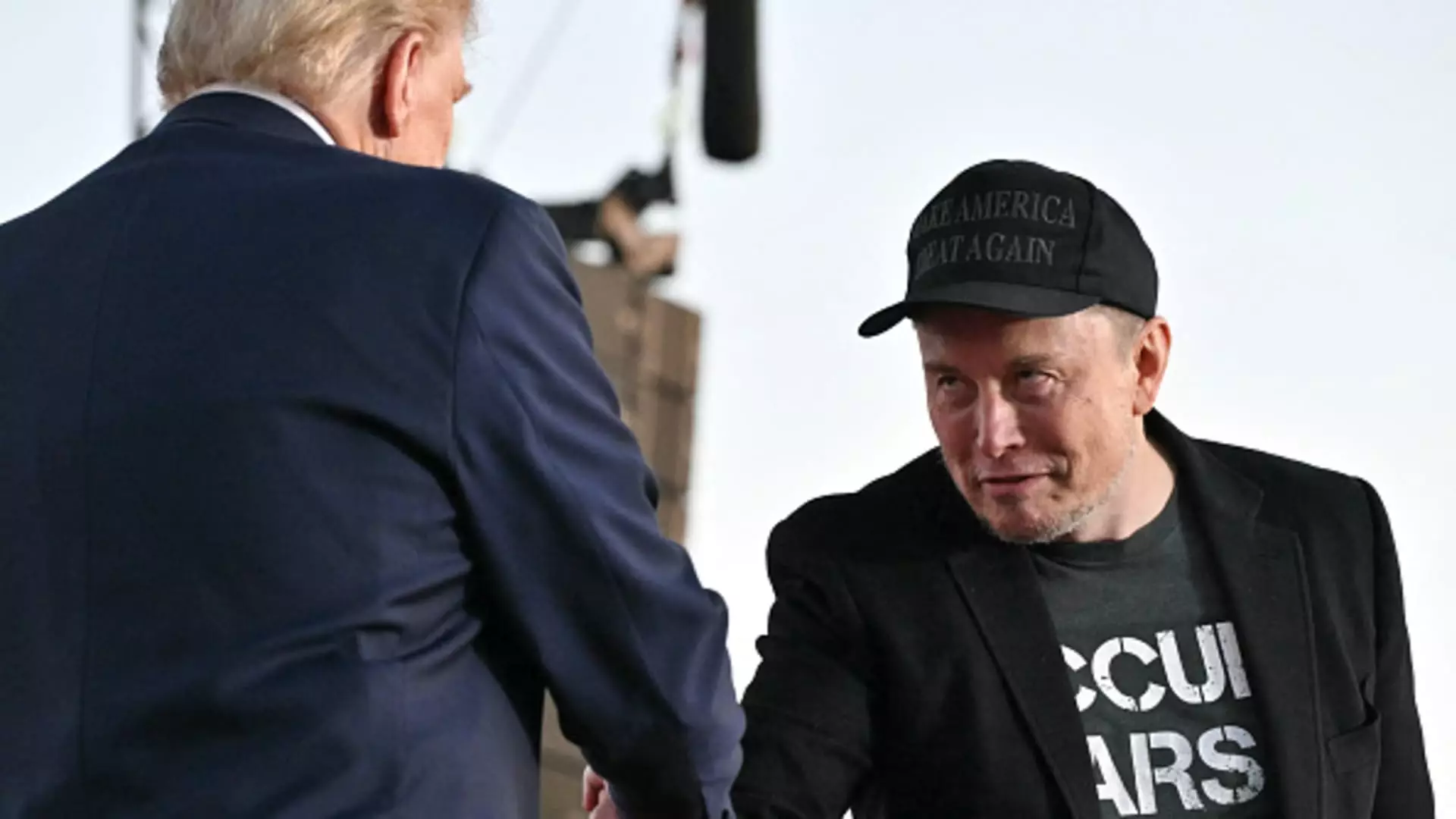The Federal Reserve, America’s central banking system, plays a crucial role in maintaining economic stability by managing monetary policy. Traditionally, the Fed operates independently from political influence, allowing it to make decisions based on economic data rather than political considerations. This independence is designed to foster stability and confidence in financial markets, as it prevents abrupt changes in policy that could arise from elected officials’ whims. However, recent discussions led by prominent figures, including Tesla and SpaceX CEO Elon Musk and President-elect Donald Trump, suggest a shift in this long-standing arrangement.
Elon Musk’s endorsement of the notion that the president should have a direct say in Federal Reserve policy raises several critical concerns. Musk, known for his provocative social media presence, signaled his support for this controversial concept by engaging with a post from Senator Mike Lee, who advocated for placing the Fed under presidential control. This idea poses a significant challenge to the ethos of central bank independence and raises questions about potential ramifications for economic policy. By endorsing a viewpoint that intertwines economic decision-making with political agendas, there is a risk of compromising the Fed’s ability to function effectively in managing the nation’s economy.
Former President Trump’s contentious relationship with the Federal Reserve is noteworthy. During his first term, he frequently criticized Fed Chair Jerome Powell, expressing dissatisfaction with decisions regarding interest rates. This public criticism not only undermined the Fed’s authority but also fostered an environment of uncertainty among investors and policymakers alike. Trump’s previous statements indicating a desire for a more hands-on approach to the Fed’s operations underscore a troubling precedent for future administrations, potentially paving the way for politicized monetary policy.
If the idea of presidential authority over the Federal Reserve gains traction, the implications could be profound. A politicized Fed could prioritize short-term political gains over long-term economic health, leading to erratic policy changes that may destabilize markets. The prospect of presidential influence could deter independent decision-making, as Fed officials might fear political reprisals for choices that don’t align with presidential objectives. This compromise of the Fed’s autonomy not only risks exacerbating economic cycles but also jeopardizes international confidence in U.S. financial policies.
The conversation surrounding the Federal Reserve’s independence in light of potential presidential influence invites significant scrutiny. As the incoming administration embarks on its agenda, the importance of maintaining the integrity of the Federal Reserve system cannot be overstated. Ensuring the Fed remains a non-political entity that prioritizes the economic wellbeing of the nation will be essential in fostering a stable environment for future growth. As public figures like Musk lend their voices to this pressing issue, broader discussions about the balance of power in economic policymaking are critical to safeguard the principles of effective governance and financial stability.


Leave a Reply